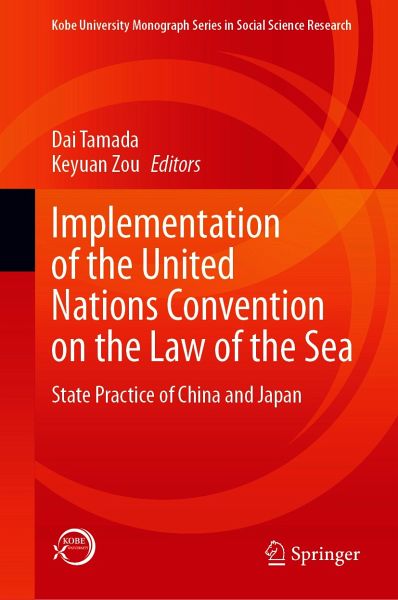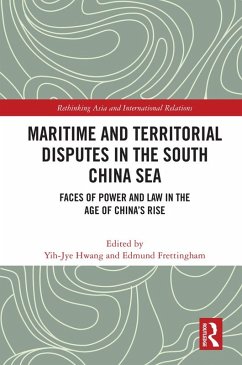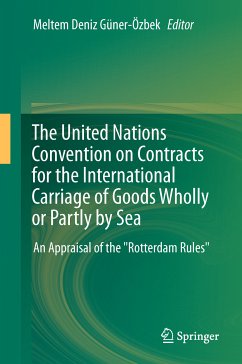
Implementation of the United Nations Convention on the Law of the Sea (eBook, PDF)
State Practice of China and Japan
Redaktion: Tamada, Dai; Zou, Keyuan
Versandkostenfrei!
Sofort per Download lieferbar
128,95 €
inkl. MwSt.
Weitere Ausgaben:

PAYBACK Punkte
64 °P sammeln!
This book analyses he implementation of the United Nations Convention on the Law of the Sea (UNCLOS) in the light of state practices of China and Japan. The special character of the book can be found in its structure of comparative analysis of the practices of China and Japan in each part. The focus is on historical aspects (Part I), implementation of the UNCLOS (Part II), navigation (Part III), mid-ocean archipelagos (Part IV), the marine environment (Part V), and dispute settlement (Part VI). By taking this approach, the book elucidates a variety of aspects of history, difficulties, problems...
This book analyses he implementation of the United Nations Convention on the Law of the Sea (UNCLOS) in the light of state practices of China and Japan. The special character of the book can be found in its structure of comparative analysis of the practices of China and Japan in each part. The focus is on historical aspects (Part I), implementation of the UNCLOS (Part II), navigation (Part III), mid-ocean archipelagos (Part IV), the marine environment (Part V), and dispute settlement (Part VI). By taking this approach, the book elucidates a variety of aspects of history, difficulties, problems, and controversies arising from the implementation of the UNCLOS by the two nations. Furthermore, contributors from China and Japan tend to show different perspectives on the UNCLOS, which, by clarifying the need for further debate, are expected to contribute to the continuing cooperation between the academics of the two states.
Dieser Download kann aus rechtlichen Gründen nur mit Rechnungsadresse in A, B, BG, CY, CZ, D, DK, EW, E, FIN, F, GR, HR, H, IRL, I, LT, L, LR, M, NL, PL, P, R, S, SLO, SK ausgeliefert werden.












